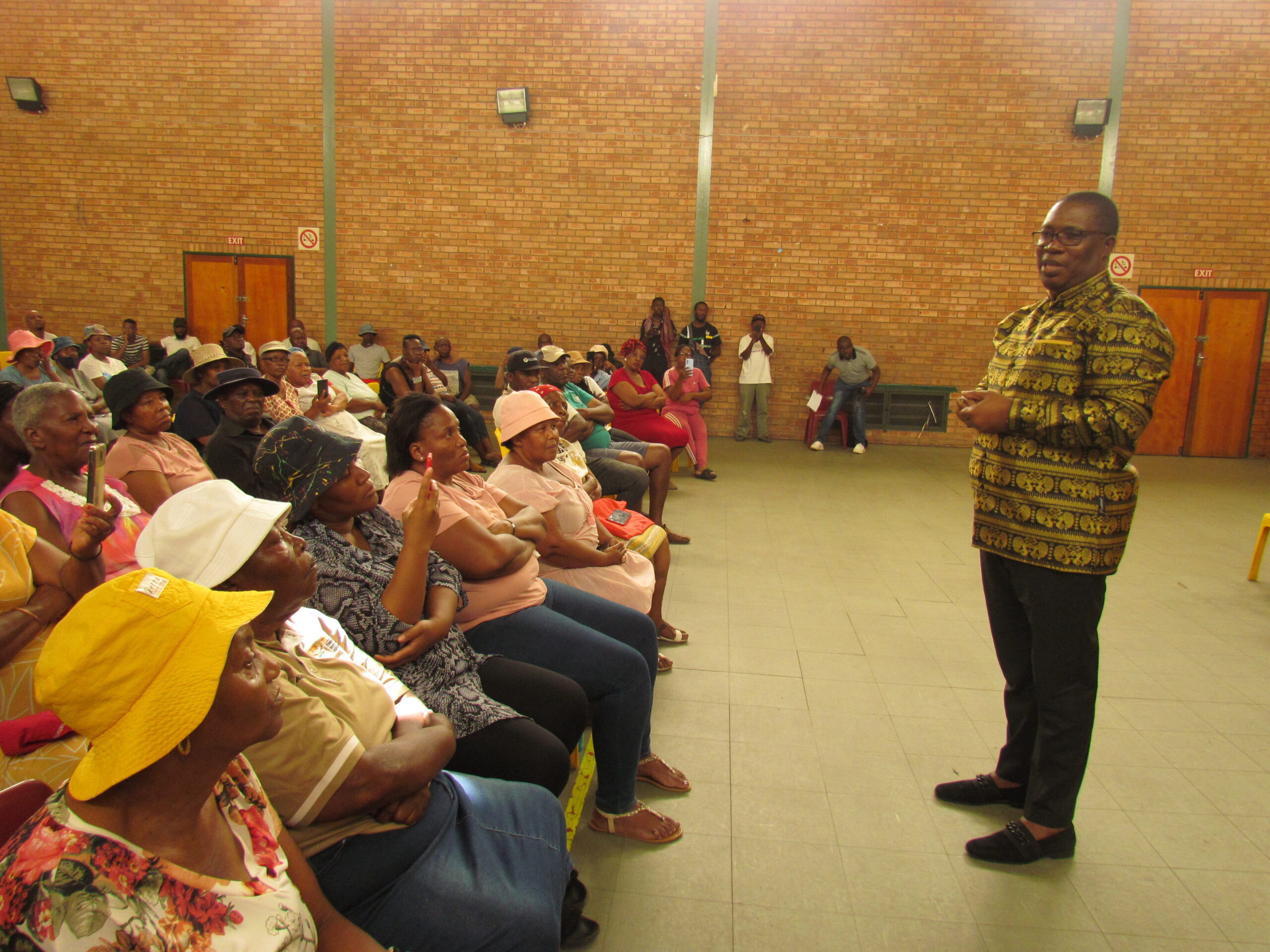
Residents of Ikageng section and surrounding areas in Mamelodi East, Tshwane have been without water inside their households for close to four years now.
This despite their homes being mortgage/ loan houses for which they pay exorbitant amounts of money to banks every month.
Up until shortage of water broke out in Ikageng four years ago, Ikageng section was regarded as one of the elite sections in terms of township standards.
This as police officers, teachers, nurses, doctors, soccer stars, actors, musicians and professionals from other spheres of life are the predominant residents of the area.
But this perception is gradually changing as residents there told Tshwane Talks at the weekend that the area now feels like a rural village as many of them have to carry buckets for long distances twice or thrice a day to fetch water from water tanks that have been set up at the local hall by the City of Tshwane municipality.
In March last year Gauteng Premier Panyaza Lesufi and ANC Secretary General Fikile Mbalula convened a meeting at the selfsame Ikageng hall wherein they promised residents that the national government would sort out the water crisis itself as the City of Tshwane had failed in this regard.
But that promise has never been fulfilled up to now.
According to an email response by the City of Tshwane dated 4 July 2023; illegal water connections at the reservoir that is situated by the mountainside in Mamelodi East are the cause of the problem.
This as illegal squatters living next to the reservoir have redirected water that is supposed to go to Ikageng to their own shacks.
Asked as to when residents of Ikageng could expect water to be supplied to their households again as was the case in the past, City of Tshwane spokesperson Lindela Mashigo responded via email as follows:
“Once the City has been granted an eviction order to expel the illegal occupiers it will then be able to remove the illegal water connections at the reservoir.”
Up until now the City of Tshwane has not responded to questions regarding the date on which the eviction order was sought, the court in which the eviction was sought, the name of the court in which the eviction order was sought and the outcome of the application of the said eviction order.

Late in January this year mayor Cilliers Brink visited the reservoir and merely confirmed that the problem regarding water shortage in Ikageng was the illegal water connections at the reservoir.
He said nothing about a court order or strategies to remove the illegal squatters there.
A few weeks ago the City of Tshwane told Tshwane Talks that the question of eviction order against the illegal squatters would best be answered by the City of Tshwane’s legal team, but up until now no response has been forthcoming from the said legal team.
City of Tshwane has also not responded as to who the illegally-occupied land belongs to in actual fact.
This as illegal squatters there claim that the land belongs to the late chief Lekhuleni who allowed them to settle there for free.
Another group of squatters there claim that they bought the stands on which they have built their shacks from local businessmen who they refused to name.
Prices for these stands range from R3000 to R10 000.
Regarding the matter of who the tender to supply the water tankers has been awarded to, Mashigo revealed that the tender has been awarded to a company called Mapaseka.
Company registration check reveals that Mapaseka company was coincidentally registered four years ago in the same year the Ikageng water crisis started.
According to Mashigo’s response regarding the cost of the tender, the City of Tshwane pays Mapaseka company R433,55 cents per day and the company works for 8 hours every day.
This amount translates to R1 265 966 a year, which then translates to R5 063 864 since this tender has been operating for close to four years now.
Tshwane Talks readers have been able to read stories in this publication for free for over two years now. We still want our readers to access our stories for free, but we are asking those among our readers who can afford it to contribute at least R30 a month to cover some of the costs of publishing this independent, non-aligned online newspaper which gives a voice to all sectors of society irrespective of race, colour, creed, religion, or political affiliation. You may make your contribution by depositing at least R30 a month into Tshwane Talks' bank account. Details are as follows:
Bank Details
Bank: Standard Bank
Account Number: 10225548834
Account Type: Cheque Account